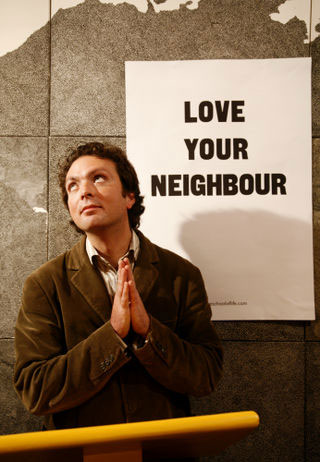Tom Hodgkinson: 'Nothing dates so fast as a futurist'
Reports of the death of the book are, I think, greatly exaggerated. The futurists out there would have us believe that ugly utilitarian devices such as the Kindle and other e-readers will gradually replace sheets of printed paper bound with glue or string. They see a world where we will instantly download any title of our choice while waiting in airport lounges and the quaint old bookshop will be a thing of the past. The techno-utopians even claim, absurdly, that there is some sort of ecological advantage to this, and that trees will be saved, forgetting that trees are a sustainable resource, while plastic is not.
We would do well to remember that their forefathers in the days of HG Wells also believed that before too long we would all be wearing silver suits and travelling around in white pods on monorails, or flying around town with jetpacks strapped to our backs. Nothing dates so fast or looks so silly as a futurist a few years on.
These same types will ask me at parties, referring to my own books and publishing ventures: «What is your digital strategy?» This is a question that makes me want to reach for my revolver. My digital strategy is largely to ignore it and hope it goes away, as so many fads have done before it. In the 1960s, people thought that the vinyl record would do away with the book, as instead of having to go through the tedious chore of reading one, we would now listen to a recording on our gramophone player.
I have just opened a bookshop, so I clearly have an interest in promoting the book. People tell me this is a «brave» venture, and I think they are using that word as a synonym for foolhardy, reckless or even plain stupid.
Well, when I look at my own book sales, and at sales of The Idler, I don’t see many digital copies shifting. In the case of both, e-sales count for one in 1,000, which is barely significant. «Ah yes,» say the futurists, «but there will come a tipping point.» Now there’s another phrase that makes me want to reach for the revolver: tipping point. It simply means that something has become popular, and usually it has become popular as a result of good old-fashioned hard work on the part of its inventor, not some magical process. I predict now: there will be no tipping point.
And when I travel by Tube, train or bus, is everyone plugged into their e-reader? No, they are reading newspapers and books. This is because reading ink on paper is right, and hauling around an expensive, fragile electronic gadget that runs out of power is wrong. Customers in our shop say they love browsing books, stumbling across new and unfamiliar titles, and also meeting other people, which happens every day in our convivial old-world outpost.
To those who accuse this neo-Luddite of being old, past it and out of date, I say this: the younger set are also embracing the real. This week I have been sent an excellent new magazine called Delayed Gratification, a nicely produced, perfect-bound quarterly that digests the news in leisurely fashion. «Print is not dead,» declare the young editors. «There is still nothing like the pleasure created by ink on paper.»
There is another thing that the neo-futurists forget: beauty. Their strictly utilitarian creed, inherited from that terrible maniac Jeremy Bentham, holds that convenience and speed are the sole aims of mankind. They forget that the form is as important as the content. One of these futurists started lecturing me recently about why I should embrace the digital revolution. He said he didn’t care about the form; it was the content of the book he was interested in. Hence his love of the Kindle. Stifling a yawn, I responded that the cover of a book, its paper quality, its typesetting — in short, its physical feel — actually enhance its content.
Going back in time, we find that the printing press made books less beautiful than they were before. Just look at some of those monkish bibles. «I think the invention of movable type was a disaster, sir,» says a young Charles Ryder to his housemaster, in an Evelyn Waugh story, on being presented with a hand printing press. «It destroyed calligraphy.»
And there’s another thing: the return of letterpress printing. I met up this week with Matthew Stinchcomb, European director of Etsy, the website that provides a marketplace for home-made crafts. He proudly gave me his letterpress-printed business card, and I proudly gave him mine. Truly, beauty is not dead! And the old world can live alongside the new!
 Tom Hodgkinson, the editor of ’The Idler’
Tom Hodgkinson, the editor of ’The Idler’Source: The Independent



